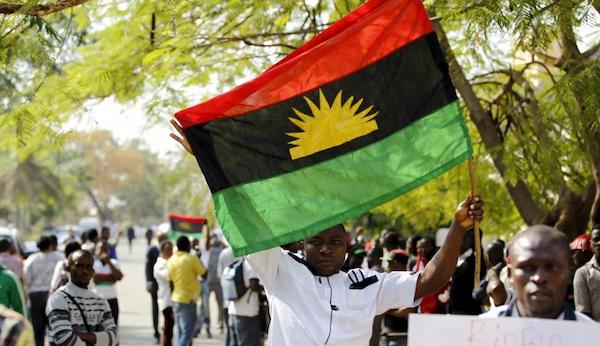News
IPOB disputes proscription legality, cites lack of due process, court ruling

The Indigenous People of Biafra (IPoB) is contesting the legality of its proscription by the Federal Government, asserting that the process was flawed and inconsistent with the principles of due process and the rule of law.
In a statement released on Sunday by its Media and Publicity Secretary, Emma Powerful, the group highlighted a 2017 ruling by Justice B.F.M. Nyako of the Federal High Court, Abuja, which reportedly “found no evidence at the time to support claims that IPoB was an unlawful organization.”
“The ruling, which struck out charges related to the alleged unlawfulness of IPoB, remains unchallenged and subsisting,” the group stated, underscoring the legal precedent they believe supports their position.
IPoB alleges that despite this prior ruling, a subsequent ex parte proscription order was obtained in the same court, without their legal representatives being present. They argue that this ex parte process violated the constitutional guarantee of a fair hearing, as enshrined in Section 36 of the Nigerian Constitution.
The group expressed its concern that it was denied the opportunity to present its case and defend itself before the proscription order was issued, and therefore calls for a review of the decision to ensure compliance with due process.
Read also: Brazilian police thwart bomb plot at Lady Gaga’s Rio concert, arrest two
“The proper forum for determining IPoB’s legal status remains in a fair and open judicial setting, where all parties are represented and heard,” the statement read, emphasizing their desire for a transparent and impartial legal process.
IPoB maintains that it is a non-violent organization, committed to advocating for the rights of the Biafran people, and affirms its intention to continue operating within the framework of the law.
The group is also appealing to the international community and civil society organizations to pay close attention to the legal circumstances surrounding its proscription, suggesting that the process may have deviated from established legal norms.
“We remain committed to peace, dialogue, and adherence to lawful processes in pursuit of our goals,” the statement concluded, reiterating their commitment to peaceful means.
Join the conversation
Support Ripples Nigeria, hold up solutions journalism
Balanced, fearless journalism driven by data comes at huge financial costs.
As a media platform, we hold leadership accountable and will not trade the right to press freedom and free speech for a piece of cake.
If you like what we do, and are ready to uphold solutions journalism, kindly donate to the Ripples Nigeria cause.
Your support would help to ensure that citizens and institutions continue to have free access to credible and reliable information for societal development.




























